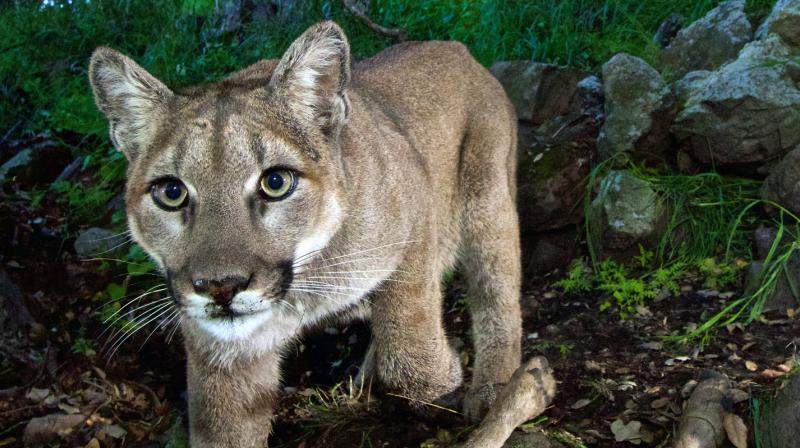Lions not as bold?

Los Angeles: Mountain lions are so afraid of humans that they flee when they hear our voices, according to a study that suggests the sharp-clawed carnivores are not as bold as their reputation.
The findings are particularly valuable as human development encroaches on lion habitat and drives up the number of human-puma encounters, researchers said.
“We exposed pumas in the Santa Cruz mountains to the sound of human voices to see if they would react with fear and flee, and the results were striking: They were definitely afraid of humans,” said Justine Smith, who led the study as a graduate student in University of California (UC), Santa Cruz in the US.
Smith, lead author of the study published in the journal Proceedings of the Royal Society B, and colleagues devised a novel experiment to gauge puma behaviour.
Her team placed audio equipment at puma kill sites in the Santa Cruz Mountains; when a puma came to feed, its movements triggered motion-activated technology that broadcast recordings of people talking, and a hidden camera captured the puma's responses.
They broadcast recordings of Pacific tree frog vocalisations as a control.
“We found that pumas almost always ran from the sound of humans - and almost never ran from the sound of frogs,” said Smith, now a postdoctoral researcher at UC Berkeley.
In 29 experiments involving 17 pumas, the pumas fled in 83 percent of cases as soon as it heard human voices, and only once upon hearing frogs.
In addition to establishing the fear response, the study reveals changes in puma feeding behaviour that could have implications for their well-being in human-dominated landscapes - and their impact on prey populations, particularly deer.
The results build on previous work showing higher kill rates and lower feeding times in more human-populated areas.
“We found that pumas took longer to return to their kills after hearing people, and subsequently reduced their feeding on kills by about half,” said Smith.
“Those behavioural changes are significant, as our previous work has shown that they cause pumas to increase their kill rates by 36 percent in areas with high human activity,” she said.
This is the first study to experimentally link the fear of humans to feeding behaviour in large carnivores, said Chris Wilmers, associate professor at UC Santa Cruz.
“Fear is the mechanism behind an ecological cascade that goes from humans to pumas to increased puma predation on deer,” said Wilmers.
“We are seeing that human disturbance - beyond hunting - may alter the ecological role of large carnivores. As we encroach on lion habitat, our presence will likely affect the link between top predators and their prey,” he added.

